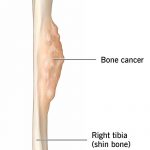
fluoxymesterone – oral
Medication Uses: This medication is used in men who do not make enough testosterone. Testosterone is responsible for normal functions like growth and development of genitalia, muscles, and bones. It also helps with sexual development in boys. Fluoxymesterone is similar to natural testosterone and belongs to the group of drugs called androgens. It affects many body systems to help with normal development and function. Fluoxymesterone may also be used in adolescent boys with delayed puberty.
How To Use: Take this medication by mouth with or without food, usually 1 to 4 times a day as directed by your doctor. The dosage is based on your medical condition, testosterone levels, and response to treatment. Use this medication regularly to get the most benefit from it. Do not suddenly stop using fluoxymesterone if you have been using it regularly for an extended time or at high doses. This could prevent your body from producing its own testosterone and may cause withdrawal reactions. To prevent withdrawal reactions, your doctor may gradually reduce your dose. Consult your doctor or pharmacist for more details and report any withdrawal reactions immediately. This medication can also be misused, so do not increase your dose, take it more frequently, or take it for a longer time than prescribed, as it can cause serious side effects. Tell your doctor if your condition does not improve or worsens.
Side Effects: Nausea, vomiting, headache, skin color changes, changes in sexual interest, oily skin, hair loss, and acne may occur. If any of these effects persist or worsen, tell your doctor or pharmacist promptly. Remember that your doctor has prescribed this medication because the benefit to you is greater than the risk of side effects. Many people using this medication do not have serious side effects. Tell your doctor immediately if you experience any serious side effects such as changes in mood, trouble sleeping, changes in urination, breast swelling or tenderness, frequent/prolonged erections (in males), painful/prolonged erection (in males), signs of serious liver disease, or signs of a serious allergic reaction. This is not a complete list of possible side effects. If you notice other effects not listed above, contact your doctor or pharmacist.
Precautions: Before taking fluoxymesterone, tell your doctor or pharmacist if you are allergic to it or if you have any other allergies. This product may contain inactive ingredients that can cause allergic reactions or other problems. Talk to your pharmacist for more details. This medication should not be used if you have certain medical conditions. Before using this medication, consult your doctor or pharmacist if you have a history of breast or prostate cancer. Tell your doctor or pharmacist your medical history, especially of heart disease, liver problems, kidney problems, other types of cancer, high cholesterol, high blood pressure, enlarged prostate, breathing problems, or diabetes. This medication may affect your cholesterol and may increase your risk of heart problems. Tell your doctor if you become bed-ridden for a prolonged time while using this medication. Before having surgery, inform your doctor about all the products you use.
Drug Interactions: Before using this medication, tell your doctor or pharmacist about all prescription and nonprescription/herbal products you may use, especially blood thinners or corticosteroids. This medication may interfere with certain laboratory tests, so make sure all your doctors know you use this drug. This document does not contain all possible interactions. Keep a list of all your medications and share it with your doctor and pharmacist.
Overdose: If overdose is suspected, contact a poison control center or emergency room immediately. US residents can call their local poison control center at 1-800-222-1222. Canada residents can call a provincial poison control center.
Notes: Do not share or sell this medication to others. Laboratory and medical tests should be done periodically to monitor your progress or check for side effects.
Missed Dose: If you miss a dose, take it as soon as you remember. If it is near the time of the next dose, skip the missed dose and resume your usual dosing schedule. Do not double the dose to catch up.
Storage: Store at room temperature away from light and moisture. Do not store in the bathroom. Keep all medicines away from children and pets. Properly discard this product when it is expired or no longer needed.
Related Disease Conditions
Breast Cancer
Breast cancer is an invasive tumor that develops in the mammary gland. It is detected via mammograms, self-examination, biopsy, and specialized testing on breast cancer tissue. Treatment may involve surgery, radiation, hormone therapy, chemotherapy, and targeted therapy. Risk may be lowered by managing controllable risk factors. Breast cancer is the most common cancer among American women, with one in every eight women developing it. There are many types of breast cancer, and the causes are unknown. Signs and symptoms include a lump in the breast or armpit, nipple discharge, nipple changes, breast pain, and changes in breast size or shape. Diagnosis is done through physical exams, self-exams, mammography, ultrasound, and biopsy. Treatment depends on the type and stage of cancer and may involve surgery, radiation, and chemotherapy.


